VW Tiguan vs BMW X1 - Differences and prices compared
Compare performance (272 HP vs 326 HP), boot space and price (32800 £ vs 38200 £) at a glance. Find out which car is the better choice for you – VW Tiguan or BMW X1?
Costs and Efficiency:
Price and efficiency are often the first things buyers look at. Here it becomes clear which model has the long-term edge – whether at the pump, the plug, or in purchase price.
VW Tiguan has a to a small extent advantage in terms of price – it starts at 32800 £, while the BMW X1 costs 38200 £. That’s a price difference of around 5443 £.
Fuel consumption also shows a difference: VW Tiguan manages with 1.40 L and is therefore decisively more efficient than the BMW X1 with 2.50 L. The difference is about 1.10 L per 100 km.
As for range, the VW Tiguan performs noticeable better – achieving up to 126 km, about 45 km more than the BMW X1.
Engine and Performance:
Power, torque and acceleration are the classic benchmarks for car enthusiasts – and here, some clear differences start to show.
When it comes to engine power, the BMW X1 has a a bit edge – offering 326 HP compared to 272 HP. That’s roughly 54 HP more horsepower.
In acceleration from 0 to 100 km/h, the BMW X1 is minimal quicker – completing the sprint in 5.40 s, while the VW Tiguan takes 5.90 s. That’s about 0.50 s faster.
In terms of top speed, the BMW X1 performs minimal better – reaching 250 km/h, while the VW Tiguan tops out at 242 km/h. The difference is around 8 km/h.
There’s also a difference in torque: BMW X1 pulls a bit stronger with 477 Nm compared to 400 Nm. That’s about 77 Nm difference.
Space and Everyday Use:
Whether family car or daily driver – which one offers more room, flexibility and comfort?
Both vehicles offer seating for 5 people.
In curb weight, BMW X1 is hardly perceptible lighter – 1575 kg compared to 1599 kg. The difference is around 24 kg.
In terms of boot space, the VW Tiguan offers somewhat more room – 652 L compared to 540 L. That’s a difference of about 112 L.
In maximum load capacity, the VW Tiguan performs slight better – up to 1650 L, which is about 50 L more than the BMW X1.
When it comes to payload, VW Tiguan barely noticeable takes the win – 533 kg compared to 500 kg. That’s a difference of about 33 kg.
Who wins the race?
The VW Tiguan proves to be dominates this comparison and therefore becomes our DriveDuel Champion!
VW Tiguan is the better all-rounder in this comparison.

VW Tiguan
Costs and Consumption
View detailed analysis
Engine and Performance
View detailed analysis
Dimensions and Body
View detailed analysis
VW Tiguan
The VW Tiguan blends sensible family practicality with a dash of German polish, delivering a calm, reassuring ride and a cabin that never feels like an afterthought. For buyers who want an SUV that’s easy to live with yet still nicely dressed, the Tiguan is the grown‑up choice that keeps a cheeky wink in reserve.
details





BMW X1
The BMW X1 brings a premium feel to compact crossover life, wrapping practical space and agile handling into a tidy, upscale package. It’s ideal for buyers who want BMW driving dynamics without the bulk, offering everyday comfort and a few clever tricks to keep the commute interesting.
details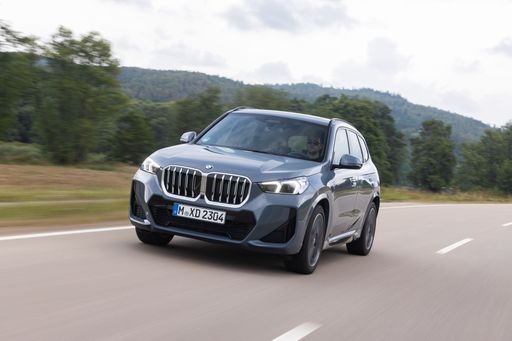
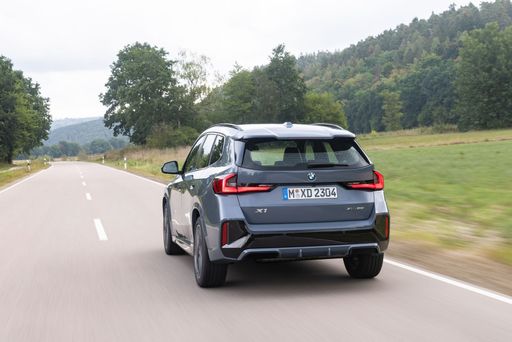
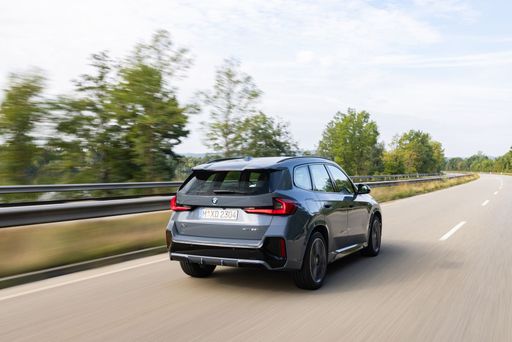
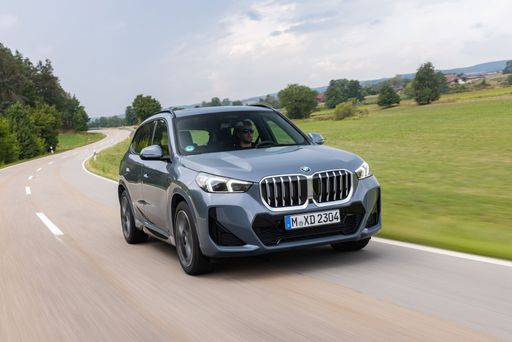
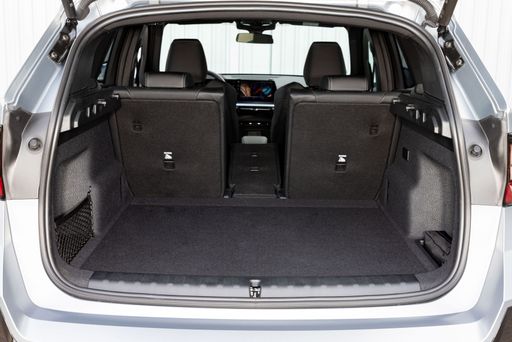

|

|
|
|
|
Costs and Consumption |
|
|---|---|
|
Price
32800 - 51900 £
|
Price
38200 - 55500 £
|
|
Consumption L/100km
1.4 - 8.4 L
|
Consumption L/100km
2.5 - 7.7 L
|
|
Consumption kWh/100km
-
|
Consumption kWh/100km
-
|
|
Electric Range
118 - 126 km
|
Electric Range
81 km
|
|
Battery Capacity
19.70 kWh
|
Battery Capacity
14.20 kWh
|
|
co2
32 - 190 g/km
|
co2
57 - 175 g/km
|
|
Fuel tank capacity
45 - 58 L
|
Fuel tank capacity
47 - 54 L
|
Dimensions and Body |
|
|---|---|
|
Body Type
SUV
|
Body Type
SUV
|
|
Seats
5
|
Seats
5
|
|
Doors
5
|
Doors
5
|
|
Curb weight
1599 - 1890 kg
|
Curb weight
1575 - 1935 kg
|
|
Trunk capacity
490 - 652 L
|
Trunk capacity
490 - 540 L
|
|
Length
4539 mm
|
Length
4500 - 4505 mm
|
|
Width
1842 - 1859 mm
|
Width
1845 mm
|
|
Height
1656 - 1658 mm
|
Height
1622 - 1642 mm
|
|
Max trunk capacity
1486 - 1650 L
|
Max trunk capacity
1495 - 1600 L
|
|
Payload
460 - 533 kg
|
Payload
490 - 500 kg
|
Engine and Performance |
|
|---|---|
|
Engine Type
Petrol, Petrol MHEV, Diesel, Plugin Hybrid
|
Engine Type
Diesel MHEV, Petrol MHEV, Petrol, Diesel, Plugin Hybrid
|
|
Transmission
Automatic
|
Transmission
Automatic
|
|
Transmission Detail
Dual-Clutch Automatic
|
Transmission Detail
Dual-Clutch Automatic
|
|
Drive Type
All-Wheel Drive, Front-Wheel Drive
|
Drive Type
Front-Wheel Drive, All-Wheel Drive
|
|
Power HP
130 - 272 HP
|
Power HP
136 - 326 HP
|
|
Acceleration 0-100km/h
5.9 - 10.6 s
|
Acceleration 0-100km/h
5.4 - 9.2 s
|
|
Max Speed
198 - 242 km/h
|
Max Speed
190 - 250 km/h
|
|
Torque
220 - 400 Nm
|
Torque
230 - 477 Nm
|
|
Number of Cylinders
4
|
Number of Cylinders
3 - 4
|
|
Power kW
96 - 200 kW
|
Power kW
100 - 240 kW
|
|
Engine capacity
1498 - 1984 cm3
|
Engine capacity
1499 - 1998 cm3
|
General |
|
|---|---|
|
Model Year
2024 - 2025
|
Model Year
2024 - 2025
|
|
CO2 Efficiency Class
G, D, E, F, B
|
CO2 Efficiency Class
D, E, F, B
|
|
Brand
VW
|
Brand
BMW
|
What drivetrain options does the VW Tiguan have?
The VW Tiguan is offered with All-Wheel Drive or Front-Wheel Drive.
The prices and data displayed are estimates based on German list prices and may vary by country. This information is not legally binding.
